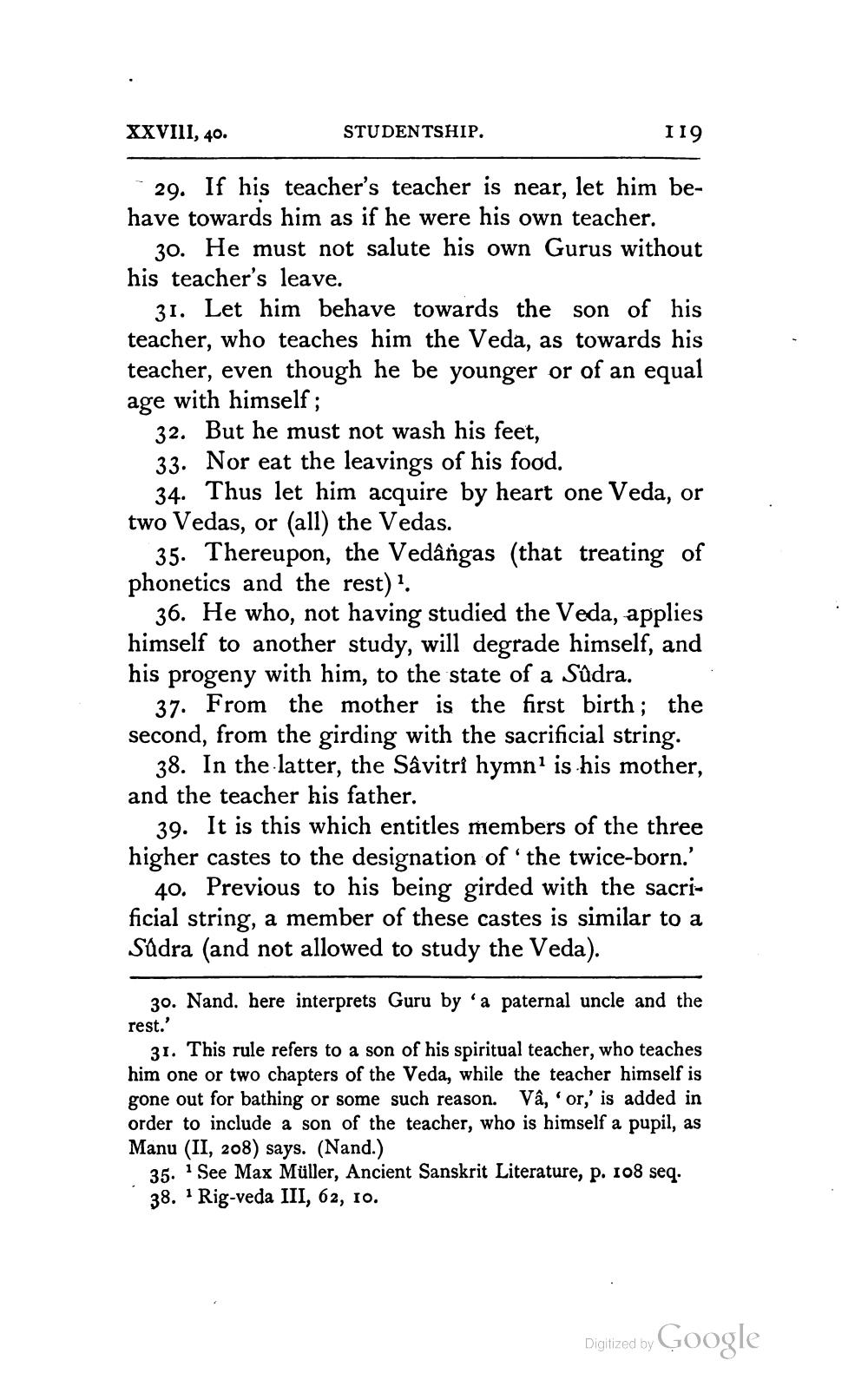________________
XXVIII, 40.
STUDENTSHIP.
119
- 29. If his teacher's teacher is near, let him behave towards him as if he were his own teacher.
30. He must not salute his own Gurus without his teacher's leave.
31. Let him behave towards the son of his teacher, who teaches him the Veda, as towards his teacher, even though he be younger or of an equal age with himself;
32. But he must not wash his feet, 33. Nor eat the leavings of his food.
34. Thus let him acquire by heart one Veda, or two Vedas, or (all) the Vedas.
35. Thereupon, the Vedârgas (that treating of phonetics and the rest).
36. He who, not having studied the Veda, applies himself to another study, will degrade himself, and his progeny with him, to the state of a Sûdra.
37. From the mother is the first birth; the second, from the girding with the sacrificial string.
38. In the latter, the Savitri hymn is his mother, and the teacher his father.
39. It is this which entitles members of the three higher castes to the designation of the twice-born.'
40. Previous to his being girded with the sacrificial string, a member of these castes is similar to a Sudra (and not allowed to study the Veda).
30. Nand. here interprets Guru by 'a paternal uncle and the rest.'
31. This rule refers to a son of his spiritual teacher, who teaches him one or two chapters of the Veda, while the teacher himself is gone out for bathing or some such reason. Vâ, 'or,' is added in order to include a son of the teacher, who is himself a pupil, as Manu (II, 208) says. (Nand.)
35. 1 See Max Müller, Ancient Sanskrit Literature, p. 108 seq. 38. * Rig-veda III, 62, 10.
Digitized by Google




